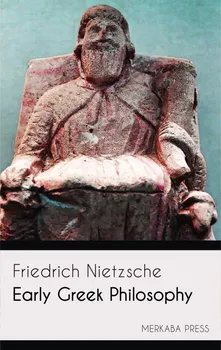We moderns have an advantage over the Greeks in two ideas, which are given as it were as a compensation to a world behaving thoroughly slavishly and yet at the same time anxiously eschewing the word "slave": we talk of the "dignity of man" and of the "dignity of labour." Everybody worries in order miserably to perpetuate a miserable existence; this awful need compels him to consuming labour; man (or, more exactly, the human intellect) seduced by the "Will" now occasionally marvels at labour as something dignified. However in order that labour might have a claim on titles of honour, it would be necessary above all, that Existence itself, to which labour after all is only a painful means, should have more dignity and value than it appears to have had, up to the present, to serious philosophies and religions. What else may we find in the labour-need of all the millions but the impulse to exist at any price, the same all-powerful impulse by which stunted plants stretch their roots through earthless rocks!
Early Greek Philosophy
Commencez ce livre dès aujourd’hui pour 0 €
- Accédez à tous les livres de l'app pendant la période d'essai
- Sans engagement, annulez à tout moment
Auteur(e) :
Langue :
anglais
Format :

50 citations de Nietzsche

Existentialism: Philosophical and Literary Works : Notes from Underground. Fear and Trembling. Ecce Homo. The Metamorphosis and others

Ecce Homo : Cómo se llega a ser lo que se es

El nacimiento de la tragedia

Sobre mi vida (esbozos autobiográficos) y apuntes filosóficos de juventud temprana

La filosofía en la época trágica de los griegos : Homero y la Filología Clásica. Cinco prólogos a cinco libros no escritos.

Humano, demasiado humano : Un libro para espíritus libres. Volumen segundo

Crepúsculo de los ídolos

Pensamientos alciónicos : Una antología de Fragmentos Póstumos (1869-1889)

Obras completas : Volumen III: Obras de madurez I

Obras completas : Volumen IV. Escritos de madurez II y complementos a la edición

Conferencias sobre el futuro de nuestros centros educativos
